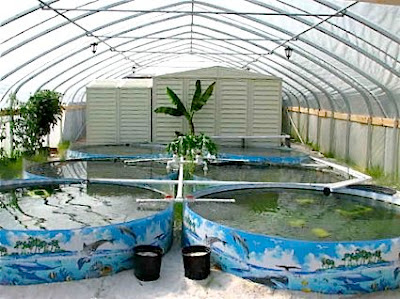An organic farm green house business has a high potential to grow and succeed because steadily the demand for organically grown farm products has grown considerably
With increase in awareness of the multiple health risks of foods grown with chemical,more and more people are turning away from food products grown with fertilizers and other chemicals towards organically grown food
Organic farm green house business was normally done on small, family run farms. But since the demand for organically grown food products is now increasing, people are investing in land for organic farming.
Organic farm green house is friendlier to the environment and is more sustainable compared to newer farming techniques. So, not only can make huge profits from organic farming, but you will also help protect the environment and the planet as a whole.
So, if you have spent years growing various plants and produce in your family garden, you can turn your experience into a lucrative business. No formal qualifications are required and you can get started even on a small budget. Here are the steps involved in starting a successful organic farm and greenhouse:
1. Learn More About Organic Farm Green House Business
Your first step towards starting an organic farm and greenhouse business is to find out more about the business to have a better understanding of how things work. Running a small farm in your yard is different from running a bigger organic farm. So, you need to understand the extra input required to farm organically in a commercial scale.
A good way to start organic farm green house is to contact the owner or manager of an established organic farm. Tell them about your intent to start your own organic farm and greenhouse business. Then ask important questions about the business, starting from questions on how to get started to those on how to manage the business successfully after launch.
Learning more about the organic farm green house business will help you understand and avoid the pitfalls and challenges you are likely to encounter as you start your own organic farm and greenhouse business.
2. Determine The Crops To Grow In Organic Farm Green House
Chances are that you don’t have enough land to grow a wide range of crops. Even if you do, you still need to specify the type of crops you will grow on your farm. These could be flowers, vegetables, foods crops, herbs, or other plants.
Don’t just choose any crops or produce out of personal preference. Conduct market research to learn what produce is popular in your area. That is, figure out what farm produce sells well. You don’t want to invest your time, energy, and effort in growing produce that nobody in your locality wants to buy.
Find out what other farmers in your locality are growing on their farms. This will give you an idea of what consumers in your locality are buying. Defining which specific farm produce you will grow will also help you better prepare your land for it.
3. Business Plan For Organic Farm Green House
Important details about your organic farm green house business will go into your business plan. These include your mission and objectives, your target market, your competition and unique selling proposition, your management plan, and your financial plan.
A business plan may not necessarily guarantee the success of your organic farm green house business, but it will significantly boost its chances of success. Your business plan will serve as a step-by-step guide to setting up your business successfully and running it effectively afterwards. It will also help you understand if there’s really a market in your locality for organic food products.
You can find lots of helpful resources online that explain how to write a business plan. You can also search for free business plan templates that you can modify easily.
4. Inspect Your Organic Farm Green House And Resources
Chances are that you already have a piece of land to use for your organic farm green house business. But bear in mind that you need to have quality soil and water because these are the basic things needed by plants to grow well.
Check the type of soil on your farm and find out whether it is suitable for growing your chosen types of produce. Also, check the status of the water available to ensure it’s not contaminated and does not contain chemicals that could harm your plants.
You also need to check your farm for sunlight penetration. Every inch of your land must get enough sunlight, as this is essential for proper plant growth.
5. Start Planting In Organic Farm Green House
Having taken the previous steps, prepare your land and start planting. You will most likely need to hire some people to work with you while preparing the land and planting your produce in your organic farm green house business.









